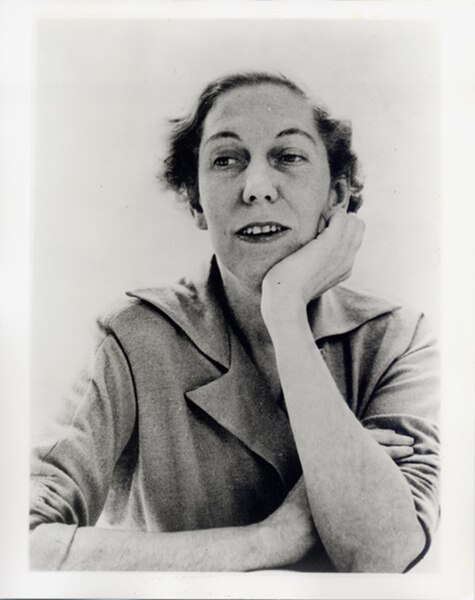Eudora Alice Welty was an American short story writer, novelist and photographer who wrote about the American South. Her novel The Optimist's Daughter won the Pulitzer Prize in 1973. Welty received numerous awards, including the Presidential Medal of Freedom and the Order of the South. She was the first living author to have her works published by the Library of America. Her house in Jackson, Mississippi has been designated as a National Historic Landmark and is open to the public as a house museum.
Eudora Welty in 1962
The Eudora Welty House
Welty is presented the Presidential Medal of Freedom by President Jimmy Carter in 1980
Welty's headstone at Greenwood Cemetery in Jackson, Mississippi
The Optimist's Daughter is a Pulitzer Prize for Fiction-winning short novel by Eudora Welty. It was first published as a long story in The New Yorker in March 1969 and was subsequently revised and published in book form in 1972. It concerns a woman named Laurel, who travels to New Orleans to take care of her father, Judge McKelva, after he has surgery for a detached retina. Judge McKelva fails to recover from this surgery, and as he dies slowly in the hospital, Laurel visits and reads to him from Dickens. Her father's second wife, Fay, who is younger than Laurel, is a shrewish outsider from Texas. Her shrill response to the Judge's illness appears to accelerate his demise. Laurel and Fay are thrown together when they return the Judge to his hometown, Mount Salus, Mississippi, where he will be buried. There, Laurel is immersed in the good neighborliness of the friends and family she knew before marrying and moving away to Chicago. Fay, though, has always been unwelcome and leaves for a long weekend, leaving Laurel in the big house full of memories. Laurel encounters her mother's memory, her father's life after he lost his first wife, and the complex emotions surrounding her loss as well as the many memories. She comes to a place of understanding that Fay can never share, and she leaves small town Mississippi with the memories she can carry with her.

First edition





